EU and the US: good partners and friends but within the G20 context
Adelina Marini, November 22, 2010
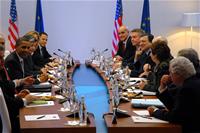 The long-awaited summit between the European Union and the United States has ended with a joint statement and then only press statements of the three participants, without an opportunity for questions from the numerous journalists that were in the press room. Furthermore, this joint statement outlines the common grounds between the EU and the US on which work is yet to begin. Nothing agreed, nothing with which the leaders of both sides could boast at home.
The long-awaited summit between the European Union and the United States has ended with a joint statement and then only press statements of the three participants, without an opportunity for questions from the numerous journalists that were in the press room. Furthermore, this joint statement outlines the common grounds between the EU and the US on which work is yet to begin. Nothing agreed, nothing with which the leaders of both sides could boast at home.
The explanation of this outcome is only one and it is that, in spite of the Lisbon Treaty which entered into force a year ago, the EU still is a union of 27 sovereign states, unlike the US. It was no accident that the summit, canceled once this spring, was held in the framework of the NATO summit in Lisbon and took less than two hours, in spite of the huge agenda the EU wanted to discuss. This fact is in the foundation of the, let's call them, "protocol" statements after the summit.
The common grounds
In their joint statement president Barack Obama, the president of the European Commission Jose Manuel Barroso and European Council president Herman van Rompuy have written that they reaffirm their commitments and encourage their G20 partners to promote balanced growth, to pursue policies that avoid unsustainable imbalances and to avoid competitive devaluation or exchange rate policies that do not reflect underlying economic fundamentals.
With regard to economic relationship, the statement recognises the central role of the Transatlantic Economic Council (TEC), tasked by the leaders to develop a transatlantic agenda to stimulate growth and create jobs in key emerging sectors and technologies. Besides, TEC will also try and improve transatlantic consultation on both sides of the Atlantic in order to synchronise regulation, removing trade barriers between the EU and the US, to enhance cooperation in the area of innovation and clean technologies, as well as to ensure the freest possible flow of ideas, products and services.
On another important issue in the common agenda, Obama, Barroso and Van  Rompuy have agreed to increase cooperation in the area of security with a focus on fundamental rights and liberties. Given the fact that both sides acknowledge cyber-crime as a serious threat, a joint Working Group will be established to work on cyber-security and cyber-crime, which will report once a year. In future time remains a framework agreement for personal data exchange to be agreed across the Atlantic and the deal for the Passenger Name Records.
Rompuy have agreed to increase cooperation in the area of security with a focus on fundamental rights and liberties. Given the fact that both sides acknowledge cyber-crime as a serious threat, a joint Working Group will be established to work on cyber-security and cyber-crime, which will report once a year. In future time remains a framework agreement for personal data exchange to be agreed across the Atlantic and the deal for the Passenger Name Records.
There is no news on another issue of concern for four EU member states, including Bulgaria (Cyprus, Romania and Poland) - the visa waivering for the US. At the EU-US summit the matter was discussed but was being reduced to welcoming the inclusion of an additional EU Member State in the Visa Waiver Programme earlier this year (Greece) and reaffirming both sides' desire to complete secure visa-free travel between the United States and the European Union as soon as possible.
Who and how accepted the summit
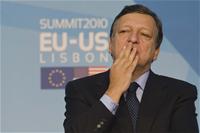 The most emotional seemed the European Commission president Jose Manuel Barroso, although his satisfaction did not look that sincere, especially when it was American president's turn. Be it because of the lack of news from the summit which made it difficult to fulfill the time for press statements, or for another reason but Mr Barroso preferred to share his personal impressions from the summit: "It was indeed very intimate, friendly, focused summit. No one read notes, there was a real dialogue and I think this is indeed what we are looking for when we discuss these kinds of issues at a summit level".
The most emotional seemed the European Commission president Jose Manuel Barroso, although his satisfaction did not look that sincere, especially when it was American president's turn. Be it because of the lack of news from the summit which made it difficult to fulfill the time for press statements, or for another reason but Mr Barroso preferred to share his personal impressions from the summit: "It was indeed very intimate, friendly, focused summit. No one read notes, there was a real dialogue and I think this is indeed what we are looking for when we discuss these kinds of issues at a summit level".
After speaking briefly about the main topics of the talks, Barroso again wanted to make a very personal remark: "I have been to many summits, I think to a large extent this was different because of the intimate, informal way these matters were addressed. I really have a lot of admiration, I have to say, for president Obama's physical resilience after all the summits he has been, still in Yokohama time". (Barack Obama recently had a two-week tour in Asia, within which he took part in the G20 summit in Seoul; and in Lisbon, in the framework of the Nato summit, he also had several bilateral meetings).
Whether because of the fatigue from the long trips and the change of time zones, but the American president really looked tired and not quite involved in the event. At some moments he seemed not sure how to enumerate the names of Jose Manuel Barroso and Herman van Rompuy. A greater part of his statement was expressing gratitudes for both EU leaders, recalling the EU-US summit in Washington last autumn, welcoming the entry into force of the Lisbon Treaty, as well as his good impression of the new EU High Representative on Foreign Affairs baroness Catherine Ashton, whom he called Cathy.
After a long pause, leaving the audience with the impression that the president is 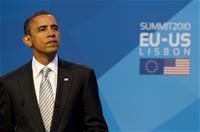 not sure how to continue, Barack Obama said: "You know, this summit was not as exciting as other summits because we basically agree on everything. But, nevertheless, I value these meetings for a simple reason - America's relationship with our European allies and partners is the cornerstone of our engagement with the world and it's a catalyst for global cooperation, whether it's creating jobs for our people, sustaining global economic recovery, protecting our citizens, preventing nuclear proliferation".
not sure how to continue, Barack Obama said: "You know, this summit was not as exciting as other summits because we basically agree on everything. But, nevertheless, I value these meetings for a simple reason - America's relationship with our European allies and partners is the cornerstone of our engagement with the world and it's a catalyst for global cooperation, whether it's creating jobs for our people, sustaining global economic recovery, protecting our citizens, preventing nuclear proliferation".
The American president also briefed the audience on the main issues of the talks by focusing on the need on building on the progress of Seoul, especially on the need for currencies that are market-driven and for countries with large surpluses to boost domestic demand. This is a message for China, but for the largest EU economy - Germany - as well.
Only the president of the European Council made his statement, reading from his notes, as usually. He, in fact, most clearly outlined the context in which the transatlantic friendship would be developing from now on: "Both the EU and the US are in a rapidly changing G20 world. We share a transatlantic area of 800 million people, producing almost half of the world’s GDP". Calling the world a "G20 world" Herman van Rompuy clearly showed that this is the way the world will function in the future. And how will the EU manage in such a world and to what extent the Union can rely on the US, is a question which is yet to be answered within the context of the work of the TEC.
And another very important remark of European Council's president: "To build on this common ground, it is not enough to simply use expressions like “transatlantic dialogue” or “strategic partnership”. We need to set things into motion". EU's hope, however, shared quite officially by the US, is that both sides share the same values, interests and goals. But is this so? And with his latter remark Herman van Rompuy additionally expands the question - if it is already difficult to talk about transatlantic dialogue and strategic partnership, what exactly are the EU-US relations then?
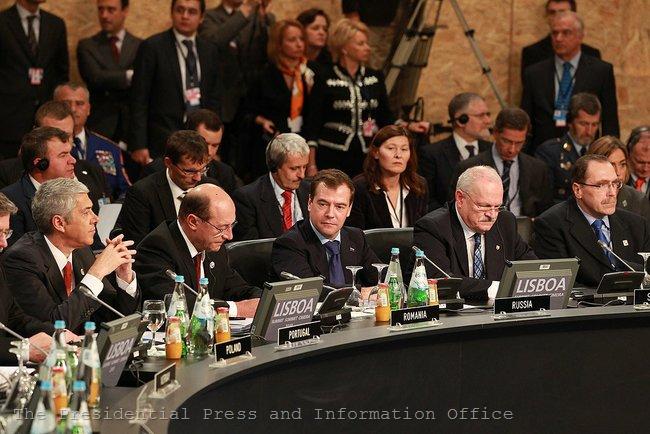 | © The Presidential Press and Information Office
| © The Presidential Press and Information Office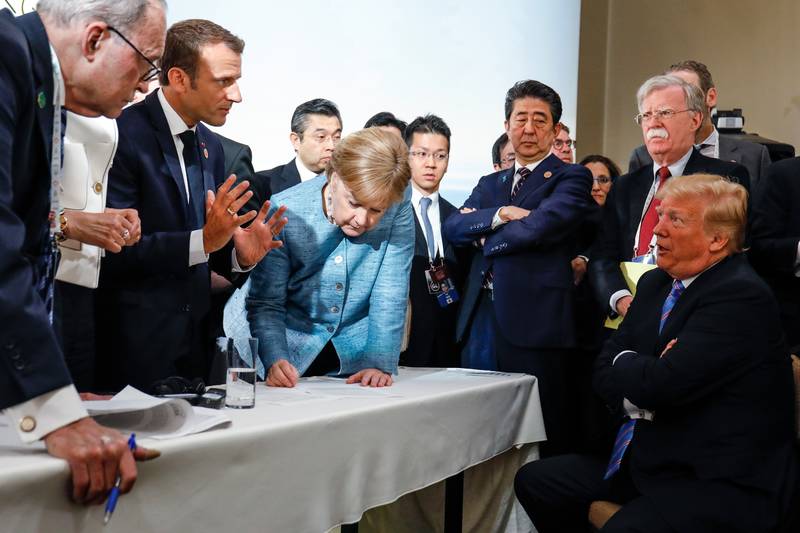 Macron, Merkel, Abe, Trump | © Council of the EU
Macron, Merkel, Abe, Trump | © Council of the EU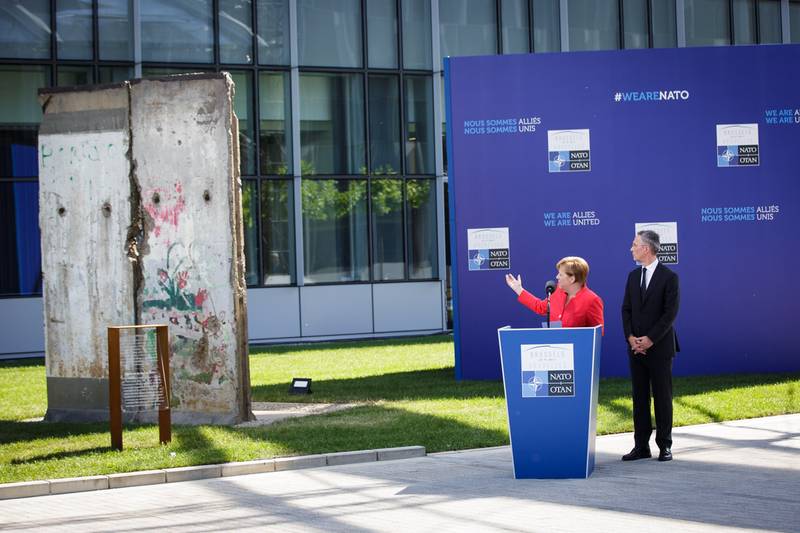 Angela Merkel | © Bundesregierung
Angela Merkel | © Bundesregierung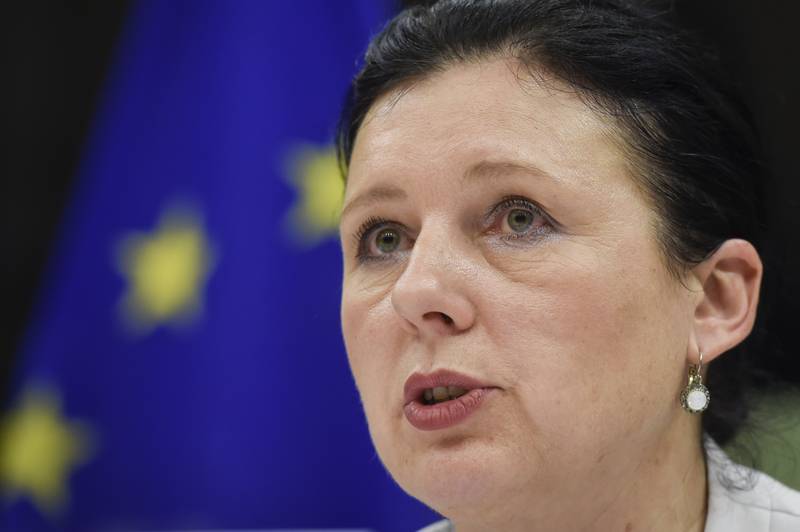 Vera Jourova | © European Parliament
Vera Jourova | © European Parliament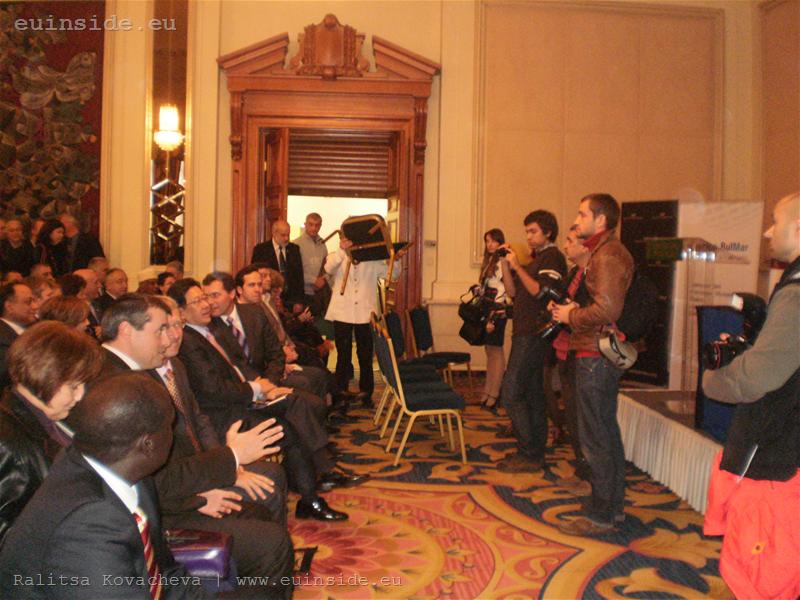 | © euinside
| © euinside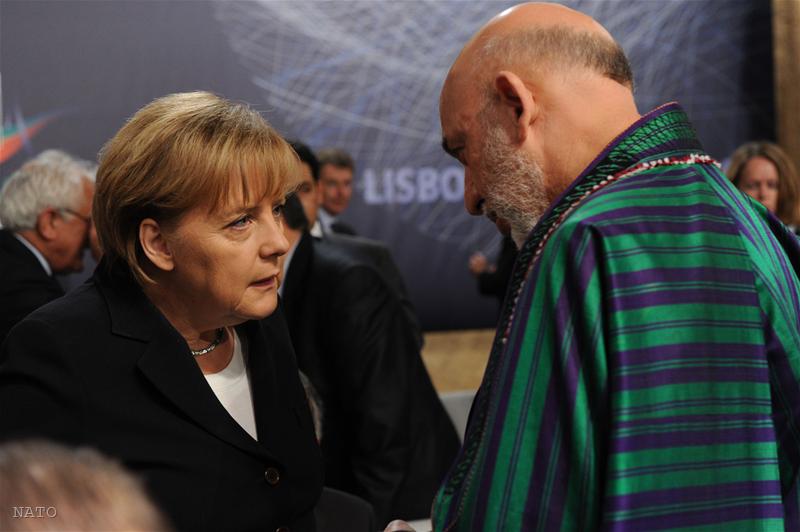 | © NATO
| © NATO